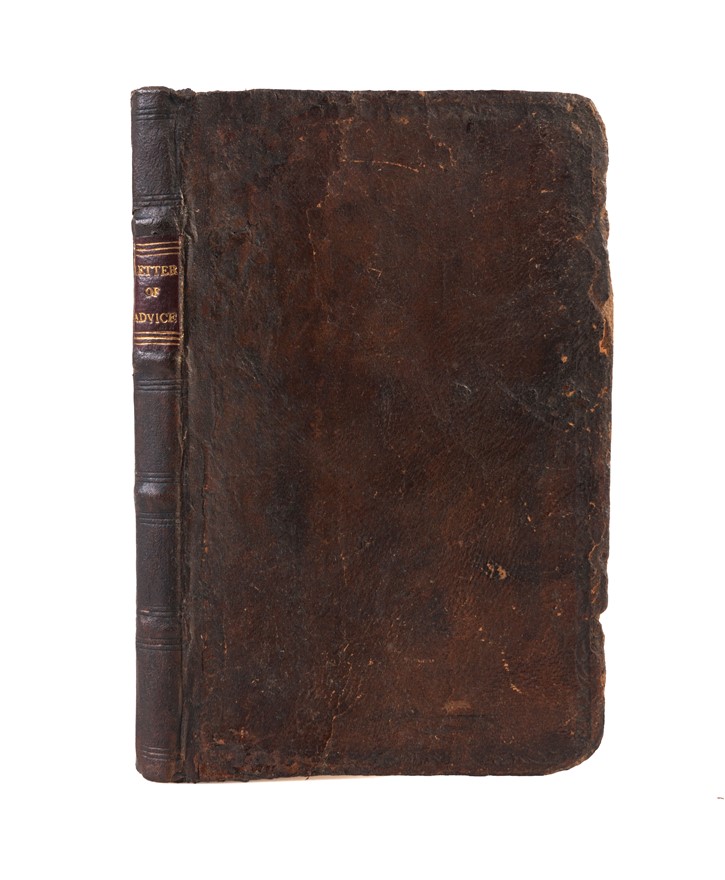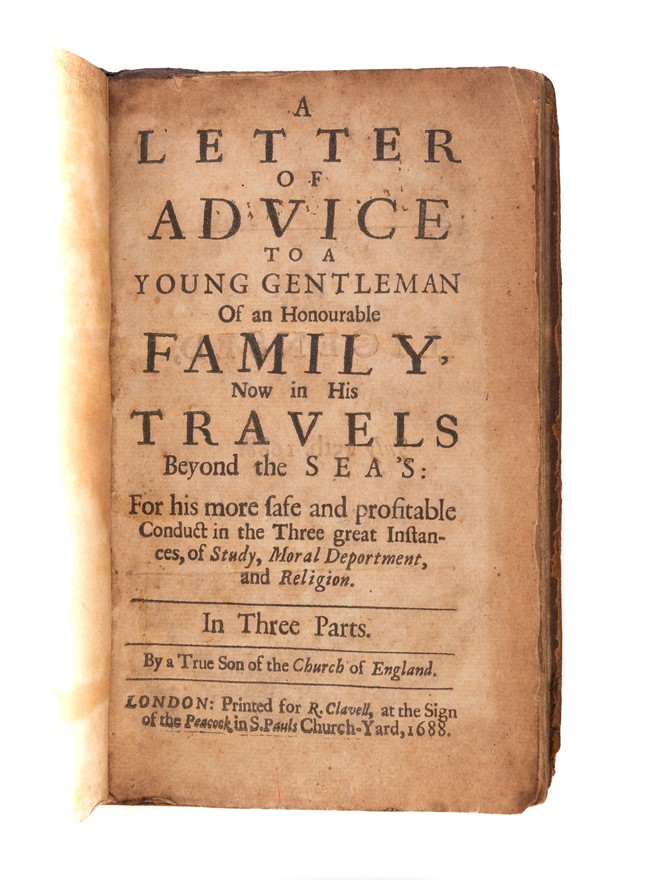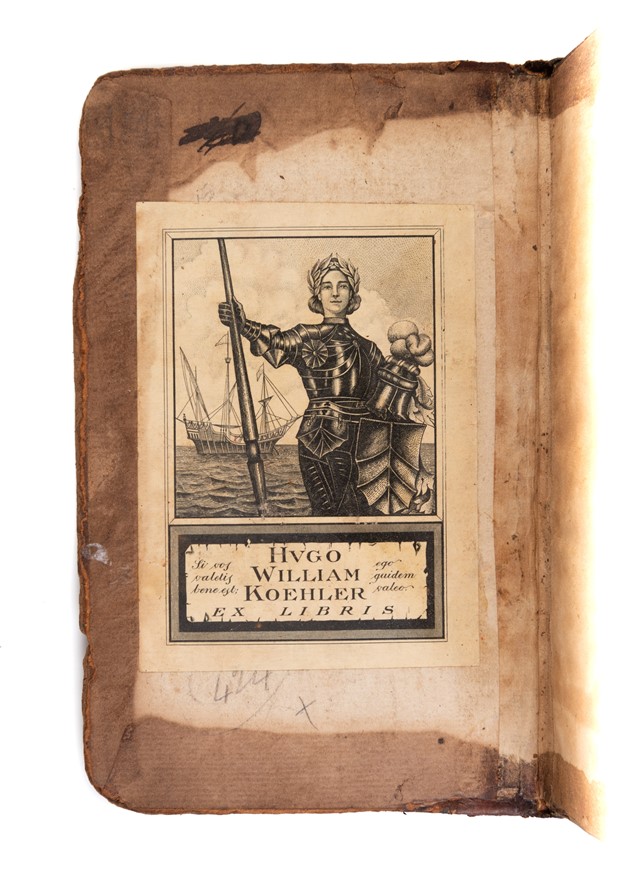A letter of advice to a young gentleman of an honourable family, now in his travels beyond the sea’s:
BURY Arthur. (1688.)
£2000.00 [First Edition]
Please contact us in advance if you would like to view this book at our Curzon Street shop.
SEVENTEENTH-CENTURY TRAVEL GUIDE
for his more safe and profitable conduct in the three great instances, of study, moral deportment, and religion. In three parts. By a True Son of the Church of England.
First edition. 12mo. Early calf, rebacked, a bit worn, extremities rubbed, text lightly toned, period endpaper supplied, lacking preliminary blank. [viii], 128pp. London, R. Clavell, at the Sign of the Peacock in S. Pauls Church-Yard,
A very good copy of this rare guide for English travellers abroad. The work would have primarily intended for young men embarking on the Grand Tour on which they sought "to acquire cultivation and refinement; to improve their taste by studying the finest specimens of art and architecture; and to participate in the leisure pursuits and sociability of polite company in the different countries through which they passed" (Sweet). However, it's worth noting that, at the time of publication, the East India Company had been operating for nearly a century, and Jamaica became an English colony in 1655.
The author was clearly aware of the opportunities and dangers travel affords and, in an introductory letter, warns that "from beyond Sea's as ignorant to the full, and more immoral and extravagant, than if they had never left the Smoak of their own Chimney ... They have only commenced Masters of that hellish and black Art of Debauchery ... Pleasures and vices corrupted these men into nothing more than wicked and irreligious sparks and blades." This caution is very much in tune with contemporary fears that "corruption by vice remained the principal reason Englishmen believed travellers embraced atheism" (Warneke).
As such, his guide comprises three sections: studies; manners and deportment; and religion. The three of which combined might secure a gentleman's progress. He advises modesty above all (in manner, dress, and consumption), warns against drinking and "carnal Pollutions", noting that when young men "are once plunged into those Pits of Filthiness, 'tis very difficult to retreat." Temperance is recommended in every instance, as is meekness. "Nor will any man that is either wise or pious, either give or accept a Challenge ... Besides, formal duels are but a late invention of the devil." Finally, he warns against swimming in the Low Countries.
While the author remains unknown, this True Son of the Church of England might be the controversial college head and theologian, Arthur Bury (1623/4-1713), whose 1690 work, The Naked Gospel, was published under the same name. ESTC list nine works published under that pseudonym between 1677 and 1719.
Provenance: ex-libris of Hugo William Koehler (1886-1941), who was probably amused and heartened by this little book. Koehler was attached to the Office of Naval Intelligence and State Department. He served under cover in the Russia during the civil war and was subsequently made naval attaché to Poland.
There are no copies listed on auction records. Carty, T.J., A Dictionary of Literary Pseudonyms, (London, 2000) p.216; Sweet, R., Cities and the Grand Tour ... (Cambridge, 2012), p.3; Warneke, S., Images of the Educational Traveller in Early Modern England (Brill, 1994) p.154; Wing, L1566.
Stock Code: 240761






